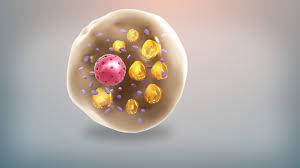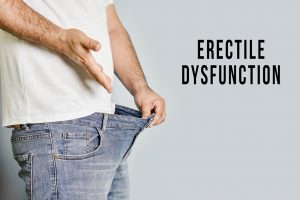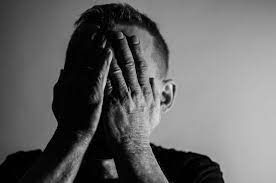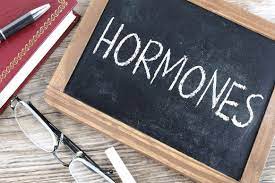What Is Andropause And How Can I Prepare For It?

Explaining Andropause
Everyone understands the concept of Menopause, the time at which women's lives change so distinctly as a result of hormonal changes within the body, but many people are relatively unaware that men undergo a related form of physiological change, which has been recently defined as Andropause.
The Tale of Man: Hormone Production throughout the Lifespan
Testosterone Peaks during Adolescence
As men age, natural Testosterone Levels within the bloodstream generally follow a stable and recognizable pattern. Around the age of puberty, Testosterone Production by the body skyrockets. This is why adolescent and teen boys have such boundless energy and have distinct personality traits such as aggressiveness, assertiveness, a powerful sense of individualism, and singlemindedness toward their goals.
The Twenties: Perfect Hormone Balance
Of course, this initial period of adulthood is marked by its ups and downs as boys come to recognize and control their newfound masculinity, but by the early twenties, Testosterone Secretion peaks and stabilizes, and young men finally come into a new and stable sense of hormone balance.
Through the course of the twenties, Hormone Production remains high and stable, and men are able to take advantage of all of the amazing benefits associated with a healthy and optimal level of vitality.
They love hard, and they play hard. They tend to have a powerful sense of self, and they are able to maintain a sense of certainty and assertiveness in tense and abstract situations.
Testosterone Plateaus in the Twenties, Declines in the Thirties and Beyond
Beginning in the late twenties or early thirties, men finally reach the end of this stage of optimal hormone balance, and both Testosterone and Human Growth Hormone Production starts to decline. Many healthier men won't recognize these changes for many years. It takes a number of years before Hormone Levels decline from total optimization to a point at which men begin to display issues as a result of that change.
Some Patients Experience Testosterone Deficiency Earlier than Others
In certain patients, however, these changes in hormone production can produce significant changes beginning in the thirties. Some individuals naturally don't produce the same amounts of these vital hormones as others. This is especially true among men who are overweight or obese or who are excessively sedentary and do not go out and get enough exercise.
Contributing Factors to Testosterone Deficiency: Obesity, Inactivity, and Poor Sleeping Habits
Fat accumulation has an incredibly negative impact on hormone production and metabolism. Adipose fat converts Testosterone in the body into estrogen, which causes numerous problems throughout the body, especially in the cardiovascular system.
The unhealthy diet accompanying obesity causes Insulin to assert dominance over Human Growth Hormone, decreasing the amount of HGH secreted by the pituitary and decreasing the ability of HGH to activate at target sites throughout the body.
Sedentary men experience many of these same problems for different reasons (although the issues of a sedentary lifestyle often lead to the characteristics of obesity). Large amounts of Testosterone and Human Growth Hormone are produced when we engage in vigorous physical activity, and  lesser amounts are still produced as a result of any form of exercise. If we do not engage in exercise, then the body produces significantly lower amounts of both of these important hormones.
lesser amounts are still produced as a result of any form of exercise. If we do not engage in exercise, then the body produces significantly lower amounts of both of these important hormones.
Men in their thirties with poor sleeping habits are also more prone to experience issues related to Andropause at an earlier age than people with healthier and more natural sleeping habits. HGH is produced in its largest amounts periodically during the deepest phases of sleep. There are also studies that correlate Testosterone Deficiency with unhealthy sleeping habits.
All three of these issues: Poor Sleeping, Sedentary Lifestyle, and Fat Accumulation, exacerbate the natural decline in Testosterone production known as Andropause, causing its symptoms to occur earlier and more severely. There are a number of other factors which can increase the rate by which hormone decline can impact the body, including negative attitude, alcohol consumption, excessive stress, infections, medications, surgery, or physical injury.
Even among the Healthy, Andropause Still Occurs
As time continues to pass, this decline in Hormone Production can even start to have its effects on men that are perfectly healthy. Even though there is a clear and abrupt sign of Menopause for a woman: The Final Period, after which Estrogen production declines quickly and abruptly, Andropause is different. No hard experience in a man's life signifies the change that occurs.
Although there is no easily recognizable marker in regard to Andropause, both Estrogen and Andropause have the potential to lead to significant changes that negatively impact a person's life.
The period in which Andropause generally happens is between the ages of forty and fifty-five. Andropause is best defined as the period of Male Hormone Deficiency in which patients are most likely to become symptomatic and begin to experience a marked decline in quality of life as a result of their deficiency.
Causes of Andropause
Beginning around the age of thirty, Testosterone Production declines by around ten percent every ten years. At the same time, Testosterone Secretion naturally drops, and the body's production of hormones that elicit negative feedback mechanisms begins to increase.
The primary inhibitor of Testosterone Activity is a hormone known as Sex-Binding Hormone Globulin. This hormone, abbreviated SHBG, latches onto circulating Free Testosterone, preventing it from producing its positive effects. Testosterone that has not been intercepted by SHBG is able to impact beneficial changes in the body. Free Testosterone is also referred to as Bio-Available Testosterone.
Today, it is estimated that thirty percent of males in their fifties are experiencing Clinically Low Levels of Testosterone which may warrant Testosterone HRT.
Early Changes Associated with Andropause
As Testosterone Levels start to decline due to Andropause, a number of major changes begin to occur. Two of the earliest markers of Testosterone Deficiency are fatigue and issues with energy production.
Men start to lose the spark which helps them seize the day.
Another early symptom of Andropause is a change in the state of mind and well-being that can often sneak up and drastically change a person over a relatively short period of time.
Testosterone is what encourages and fosters Masculine tendencies such as assertiveness and confidence, and as Testosterone Secretion Declines with age, men often start to lose their touch before many other physical symptoms of Testosterone Deficiency manifest themselves.
It becomes harder to mentally prepare oneself for the day, and the positive aggression and assertiveness that men display primarily through their twenties and thirties start to erode, turning into feelings of anxiety, helplessness, and agitation, which can cause a man to lose control of his inner sense of self and can hinder both his working life and his home life.
Physical Changes of Andropause
Over time, as these internal symptoms of Andropause start to take root, the physical changes also start to occur. As Testosterone and HGH Production decline, the body's ability to maintain itself aesthetically starts to erode as well. It becomes harder to maintain lean muscle, and it gets easier to put on pounds of fat without even changing lifestyle habits in any appreciable way.
Without proper hormone balance, the maximum benefits of exercise and physical activity simply don't take, and the aging process begins to occur more rapidly as the years continue to pass.
Sex and Andropause
However, the most impactful markers of Testosterone Deficiency are related to Sex Drive and Sexual Function. Testosterone is the key hormone related to male sexual desire and potency, and as Testosterone Levels start to drop, men start to experience a gradual decline in sexual ability that can end with impotence and infertility.
First, Andropause leads to a declining sense of sexual interest and libido. Some men have claimed that at first, they felt that their sexual frustration was the result of anxiety or personal issues, but as the symptoms worsened, they realized that it was likely something going on inside their bodies and not inside of their minds that was causing the issues leading to their grief and dissatisfaction.
the result of anxiety or personal issues, but as the symptoms worsened, they realized that it was likely something going on inside their bodies and not inside of their minds that was causing the issues leading to their grief and dissatisfaction.
Severe Testosterone Deficiency starts to lead to significant changes in sexual ability. It becomes harder to keep and maintain an erection. Sperm count starts to decline, reducing a man's ability to conceive as they grow older. The entire process of sexuality breaks down.
Physiological Symptoms of Andropause
Long Term consequences also arise as a result of Hormone Decline related to Andropause. Testosterone plays a significant role in heart health, and as Testosterone Deficiency becomes worse, it leads to issues regarding cardiovascular health, including changes in cholesterol balance, an increase in triglycerides, and the buildup of harmful and dangerous plaque, which can eventually lead to stroke, heart attack, or other life-threatening conditions.
Testosterone is also central to the proper maintenance of bone health. Testosterone is the hormone that primarily controls the proper cycling and remodeling of bone tissue, and Testosterone Deficiency causes the bones to literally begin to seep calcium, which can eventually lead to severe issues related to Osteoporosis and Osteopenia.
The Quiet Menace of Andropause
One thing that can make Andropause such an insidious form of physiological change is the manner in which it simply sneaks up on you. Andropause generally starts to occur during a period in many men's lives associated with tumultuous psychological introspection.
Many men think that the changes taking place in their minds and their bodies are related to anxiety, depression, or a lack of motivation correlated with their changing perspective of their place in their world, but very often, the reverse is true.
their changing perspective of their place in their world, but very often, the reverse is true.
Changes in hormone production may be simply souring their outlook on life, prohibiting their ability to enjoy themselves and make the most of their wisest years.
Even though Andropause is a well-recognized and studied phenomenon, and it is a physiological certainty that all men will one day deal with the effects of the Change, there is no way to predict how an individual male will experience Andropause.
We recognize numerous contributing factors, and there are likely many others that we have yet to scientifically come to understand. Because of this, every man will have a unique experience in regard to Andropause.
Is Andropause a Modern Phenomena?
No. Andropause is a biological inevitability throughout the entire animal kingdom. This process of hormonal decline has been documented among all species. Our knowledge of Andropause, however, is all relatively new. The first discussion of Andropause in medical journals began over seventy years ago, in the 1940s.
Even though we essentially discovered Andropause over seventy years ago, we have only developed meaningful ways to treat the disorder in the last few decades. Even as we began to treat the issue, it has become increasingly clear that our first efforts to diagnose Andropause were woefully inadequate, and many were left under-served and under-treated.
Today, as medical technology has increased in sensitivity, and the availability and affordability of Bio-Identical Testosterone have made the treatment more financially palatable, there is an increasing openness and interest in Testosterone Replacement Therapy for Andropause which has allowed countless men to experience the amazing benefits of Testosterone for Andropause.
Increased Capacity to Positively Diagnose Andropause in the 21st Century
Another factor that has led to the under-diagnosis of Andropause and Testosterone Deficiency is that Andropause shares many symptoms with other medical disorders, making it historically difficult to attain a diagnosis with certainty.
The relative sensitivity of the subject of male masculinity also often makes it hard for men to admit to their doctor that they have a problem. As a result, physicians don't always get all the data they need to make an informed diagnosis, which causes them to miss the underlying Testosterone Deficiency  Andropauseand simply treat the symptoms of that deficiency rather than the cause.
Andropauseand simply treat the symptoms of that deficiency rather than the cause.
As knowledge about Testosterone Deficiency and Andropause continues to change, the conversation between doctor and patient is becoming more open, and physicians more readily consider Testosterone Replacement Therapy as a result of new and effective means to monitor male Testosterone Production via blood testing.
The burgeoning interest in Testosterone Replacement Treatments has led to a veritable explosion in research dollars and national awareness of the disorder, which is getting help to more and more men that need it.
Don't Let Andropause Take Control of Your Life!
There is no reason to live with the life-draining symptoms of Andropause. New treatments such as Testosterone Creams, Sprays, and Injections are becoming more sophisticated every year, and our knowledge regarding Andropause and how to subvert this aspect of the aging process continue to evolve as well.
If you feel that you may belong to this large group of males who may benefit significantly from Andropause Treatment, we encourage you to contact the Conscious Evolution Institute for more information regarding treatment options.
- 0001 Theories On Aging [Last Updated On: October 4th, 2025] [Originally Added On: February 21st, 2021]
- 0002 Sleep And Hgh Go Hand In Hand [Last Updated On: September 30th, 2025] [Originally Added On: February 22nd, 2021]
- 0003 L-carnitine Has The Ability To Preserve Mental Sharpness In The Elderly [Last Updated On: September 29th, 2025] [Originally Added On: February 23rd, 2021]
- 0004 Knowing Two Languages Can Postpone Dementia [Last Updated On: September 28th, 2025] [Originally Added On: February 24th, 2021]
- 0005 What Are The Functions Of Human Growth Hormone? [Last Updated On: September 26th, 2025] [Originally Added On: February 25th, 2021]
- 0006 Hgh Sleep: Keep Young And Healthy With Deep Sleep [Last Updated On: September 25th, 2025] [Originally Added On: February 26th, 2021]
- 0007 Why Does Human Growth Hormone Production Drop As We Age? [Last Updated On: September 24th, 2025] [Originally Added On: February 27th, 2021]
- 0008 Growing Life Spans And Life Expectancy [Last Updated On: September 23rd, 2025] [Originally Added On: February 28th, 2021]
- 0009 Flax Seed Oil: Longevity And Anti-aging Medicine [Last Updated On: September 22nd, 2025] [Originally Added On: March 1st, 2021]
- 0010 Exercise To Increase Your Hgh Production! [Last Updated On: February 19th, 2025] [Originally Added On: March 2nd, 2021]
- 0011 Eighteen Suggestions For A Longer And Happier Life [Last Updated On: September 21st, 2025] [Originally Added On: March 3rd, 2021]
- 0012 Chemical Pollution Is Destroying Masculinity [Last Updated On: February 19th, 2025] [Originally Added On: March 4th, 2021]
- 0013 Bio-identical Hgh Hormone Replacement Therapy [Last Updated On: September 20th, 2025] [Originally Added On: March 5th, 2021]
- 0014 The Longevity Film: A review [Last Updated On: April 7th, 2025] [Originally Added On: October 25th, 2022]
- 0015 Blue Zone Cultures and Their Connection to Longevity [Last Updated On: February 20th, 2025] [Originally Added On: October 27th, 2022]
- 0016 The Prevalence and Impact of Endocrine Disrupting Chemicals [Last Updated On: February 11th, 2025] [Originally Added On: February 11th, 2025]
- 0017 Understanding Exercise's Role in Slowing Down Aging [Last Updated On: February 10th, 2025] [Originally Added On: February 12th, 2025]
- 0018 Understanding the Concept of Blue Zones [Last Updated On: February 16th, 2025] [Originally Added On: February 16th, 2025]
Word Count: 2121






